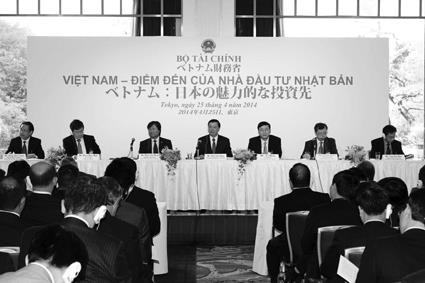With many substantially new provisions, Government Decree No. 63/2014/ND-CP, detailing a number of articles of the Bidding Law on contractor selection, is expected to create a breakthrough regarding transparency in the contractor selection and put an end to the overlapping of bidding regulations. The new decree, which will take effect on August 15 and replace Decrees No. 85/2009/ND-CP and No. 68/2012/ND-CP and Prime Minister Decision No. 50/2012/QD-TTg, would help eradicate highly competitive bids of incompetent contractors which result in slow construction progress or poor construction quality.
Evaluation of independent contractors
The selection of contractors in bidding activities always has sensitive factors which may cause state budget losses. The new decree therefore requires a contractor that participates in a mixed bidding package to be legally and financially independent from the contractors that make the feasibility study report, technical engineering dossier and blueprint dossier for that package, except where these jobs constitute part of the mixed bidding package.

urban metro line __Photo: Hoang Hai/VNA
Consultancy contractors may provide one or several consultancy services for the same project or bidding package, including elaboration of pre-feasibility study report, feasibility study report, technical engineering dossier, blue print dossier, and consultancy supervision.
Contractors are regarded as legally and financially independent from other contractors, consultancy contractors, investors and bid solicitors when satisfying four conditions: (i) not being attached to the same agency or organization directly managing non-business units; (ii) holding no share or contributed capital portion representing more than 30 percent of total share or contributed capital of investors or bid solicitors or vice versa; (iii) holding no share or contributed capital portion representing more than 20 percent of total share or contributed capital of other contractors or vice versa when all of them participate in restricted bidding for the same bidding package; and (iv) holding no share or contributed capital portion of consultancy contractors in the same bidding package or vice versa; or holding no share or contributed capital portion representing 20 percent of total share or contributed capital of another organization or individual, the same as consultancy contractors in the same bidding package.
For a state economic group, if products and services under a bidding package constitute the group’s major business and production lines and are the output of a company and concurrently the input of another company in the group, the group and its affiliated companies may participate in one another’s process of contractor selection. The Government’s regulations will be applied to a product or service under a bidding package that is the output of a company and the input of another company in the group and the only one of its kind in the market.
Enterprises with at least 30 percent of their capital being state capital will not be allowed to participate in biddings for projects invested by their managing ministries. This makes the reorganization and equitization of state-owned construction and installation enterprises quite necessary.
There are fundamental changes in the bidding dossier evaluation method in the Decree in pursuance to the 2013 Bidding Law. Before the new Bidding Law, the bidding dossier evaluation was based first of all on bid prices, followed by capabilities, techniques and human resources. Under the new Bidding Law, contractor capabilities, experiences and techniques are considered first, followed by bid prices. This aims to eliminate contractors that may be selected for (lowest) competitive bid prices but are incompetent and inexperienced or have poor technical proposals compared with other contractors.
The new Bidding Law stipulates that the bid opening is conducted twice. Accordingly, technical proposal dossier bags must be opened right after the bid closing for evaluation, followed by the opening of financial dossier bags of all contractors. This means that only contractors that meet the technical criteria can enter the next round of competition in bidding prices.
Principles for incentives
Principles for incentives are a totally new provision of the Decree. Accordingly, after all incentives are taken into account, if bid dossiers and proposal dossiers are ranked equal, priority would be given to contractors proposing higher domestic costs/expenses or employing more local workers. When a bidding contractor enjoys more than one incentive, it will be entitled to the highest incentive when incentives are taken into account.
For mixed bidding packages, incentives will be taken into account based on all proposals of contractors in consultancy, goods provision, construction and installation jobs. Contractors will enjoy incentives when they propose domestic consultancy, goods provision, construction and installation expenses accounting for at least 25 percent of the bidding packages’ work value.
Domestic goods will be eligible for incentives when contractors can prove that domestic production costs of such goods make up at least 25 percent of their prices.
For domestic procurement bidding packages, incentives will be given to bid dossiers and proposals of contractors employing female workers, war invalids or people with disabilities accounting for at least 25 percent of the total workforce and having labor contracts of a term of at least three months; and contractors being small-sized enterprises.
Simplified administrative procedures for contractors
Earlier, contractors that wish to participate in bidding had to contact bid solicitors/project owners to buy bidding dossiers and even had to carry out registration procedures before being allowed to buy bidding dossiers. In addition, when a contractor needs to change its bidding participation status (name) which is different from that it has registered at the time of purchasing the bidding dossier, it shall notify such in writing to the bid solicitor. In reality, many project owners or bid solicitors have taken advantage of this provision to request more administrative procedures, such as provision of contractor capability dossiers and being named in the list of those registering to buy bidding dossiers, for contractors to buy bidding dossiers.
Under the Decree, “bid solicitors shall receive bids of all contractors that submit their bids before the bid-closing time, even when bidding contractors have not yet bought or received bidding dossiers from bid solicitors. If contractors have not yet bought bidding dossiers, they shall pay to bid solicitors a sum of money equal to the selling price of bidding dossiers before bids are received.” Therefore, contractors that fail to buy or have yet not bought bidding dossiers may still submit their bids and participate in bidding like those who have bought bidding dossiers. Those who have bought bidding dossiers and need to change their bidding participation status (names) which are different from those they have registered at the time of purchasing bidding dossiers are not required to notify such in writing to bid solicitors (for example, when a contractor enters into a partnership with another for higher possibility to win the bidding).
Regarding the petition settlement process, existing regulations allow contractors to file their petitions directly to project owners instead of bid solicitors. For regular and centralized procurement, bid solicitors that have a role equivalent to that of project owners are responsible for settling contractors’ petitions.
The limit of competitive offers prescribed in the Decree is VND 5 billion for non-consultancy service bidding packages and that for the construction and installation or goods procurement bidding packages is 2.5 times the limit stated in Decree No. 85/2009/ND-CP. The new (higher) competitive offer limit may provide project owners and bid solicitors with more favorable conditions, help simplify administrative procedures, raise the competitiveness in the selection of contractors for common bidding packages and avoid the contractor appointment. Therefore, in common bidding packages, investors and bid solicitors can choose to apply competitive offering with simpler procedures compared with open bidding procedures. Moreover, procedures would become far simpler for the application of the form of fast-track competitive offering.
Improved transparency
Together with the new Bidding Law, the Decree creates a complete, transparent and unified legal framework for bidding for state budget-funded projects and facilitates and raises the effectiveness of the state management of bidding.
Accordingly, the online contractor selection will be applied to consultancy and non-consultancy, goods procurement, construction and installation and mixed bidding packages through open and restricted biddings, competitive offer, direct procurement and contractor appointment. The online contractor selection would be conducted according to a roadmap set by the Ministry of Planning and Investment.
To apply this method, bid solicitors and contractors have to register once through the national bidding network. Bid solicitors would have to post dossier of invitation for expression of interest, dossier of invitation for pre-qualification, bidding dossier and requirement dossier on the network.
For each bidding package, contractors will submit dossiers of expression of interest, pre-qualification participation dossiers, bids and proposal dossiers only once via the network.
Bid solicitors would conduct bid opening on the national bidding network right after the bid-closing time. If there are no contractor dossiers, bid solicitors will report such to investors for considering organizing the online contractor selection again. If there is only one contractor or are two contractors submitting dossiers, the bid solicitor would immediately open the bidding without having to handle to case under regulations.
Another noteworthy new point of the Decree is that all electronic documents transmitted via the network and information posted on the network are considered original ones with legality and validity like paper documents and can serve the evaluation, appraisal, inspection, examination, audit and capital disbursement. This would help address previous shortcomings, make bidding more transparent and bidding process for state budget-funded projects more consistent.
The Ministry of Industry and Trade cites many reasons that affect the contractor selection, including limited total investment capital of projects, limited capacity of bidding organizations and the scientific and technological level gap between domestic and foreign enterprises. In the meantime, Vietnamese contractors cannot offer low-price bids without the Government’s subsidies and other supports. Bidding activities in a number of localities still lack professionalism while the post-bidding management has not received due attention. Questions and inquiries raised by experts in bidding dossiers remain inadequate and unspecific and the expert capacity in marking bids remain limited.
Dao Quang Thu, Deputy Minister of Planning and Investment, said bidding always requires a complete and consistent legal framework to solve problems and shortcomings. However, Bui Quang Chuyen, Deputy Director of the Heavy Industry Department of the Ministry of Industry and Trade, emphasized that apart from the enactment of the Bidding Law and adequate guiding decrees and circulars, bidding results also depend on capacity of investors, project management units, bidding dossier elaboration consultants, bid evaluation experts and bidding result deciders.-


